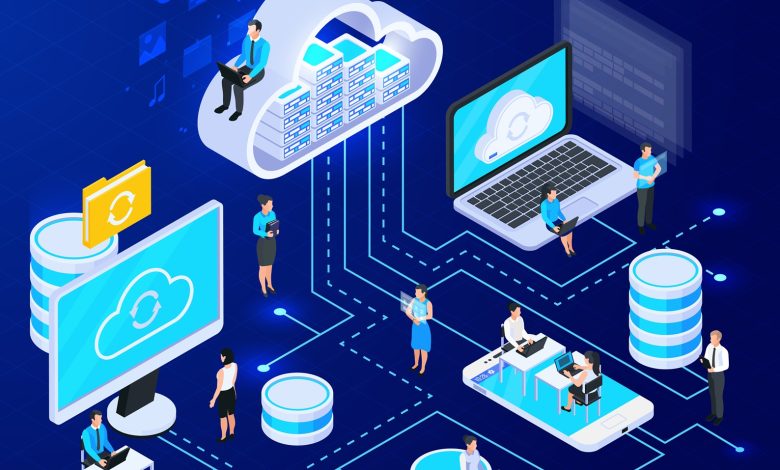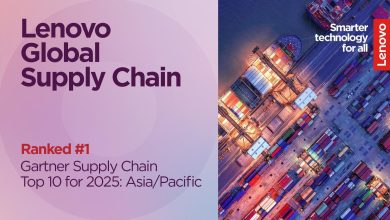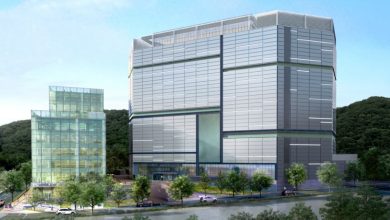2025 Tech Predictions: Lenovo Asia Pacific

By Sumir Bhatia, President, Asia Pacific, Infrastructure Solutions Group, Lenovo
Verticalisation of LLMs will shift the industrial AI landscape in 2025
Verticalisation, the process of tailoring LLMs to specific industries or domains will begin to transform and revolutionise various sectors in the year ahead across Asia Pacific. By focusing on specific domains, verticalised LLMs will potentially delve deeper into industry-specific nuances, regulations, and best practices, enabling industries and companies to generate more accurate and relevant output, tailored to the unique needs of each domain. These customised LLMs’ ability to analyse vast amounts of industry data to identify patterns and trends, will enable industry specialised data-driven decision-making.
Moreover, verticalisation of LLMs will set the stage for these models to accelerate innovation by automating tasks, streamlining workflows, and uncovering new opportunities, thereby possibly adding more value in human resources for strategic initiatives. With Asia accounting for more than half of global manufacturing value-add in 2022, according to McKinsey, this region will be a hotspot for the deployment of verticalisation of LLMs. By leveraging the power of AI, these specialised models will drive innovation, improve efficiency, and ultimately reshape the future of industries worldwide.
AI will become a true partner or companion, enabling true user-centricity
Agentic AI, or AI agents, capable of independent action and decision-making, are set to make waves over the next year and drive not just personalisation, but complete individualisation. For the first time, AI is no longer just a generative knowledge base or chat interface, it is both reactive and proactive—a true partner. Gartner estimates that nearly 15% of day-to-day work decisions will be taken autonomously through agentic AI by 2028. AI agents will leverage local LLMs enabling real-time interaction with a user’s personal knowledge base without relying on cloud processing. This offers enhanced data privacy, as all interactions remain locally stored on the device, and increased productivity, as the agent helps to automate and simplify a wide range of tasks, from document management, meeting summaries to content generation. We will also see the emergence of personal digital twins, which are clusters of agents that that capture many different aspects of our personalities and act on many different facets of need. For example, a digital twin might comprise a grocery buying agent, a language translation agent, a travel agent, etc. This cluster of agents become a digital twin when all of them work together, in sync with the individual’s data and needs.
Cybersecurity will continue to be a key concern amid growing threats
With the rise of high-profile data breaches in 2024, cybersecurity will remain a critical area of focus for businesses in APAC. Specifically, the spotlight will be on securing data, after Lenovo’s 2024 Smarter Data Management Playbook found that data security was the number one priority among IT and business decision-makers. Increased government regulations, such as the Cyber Security Bill proposed in Australia, are pushing companies to enhance their security measures, while also holding them accountable for losses and damage resulting from security failures. This growing awareness is prompting businesses to invest more heavily in cybersecurity and data protection solutions, implementing stricter processes around accessing and securing data. As the volume of data continues to increase, due to growing demand in services such as artificial intelligence (AI), the challenge lies in maintaining a robust and cost-effective data infrastructure. It is essential that businesses begin building resilient ecosystems before regulations are enforced to avoid rushed implementations that increase the risk of vulnerabilities during transition. Lenovo helps businesses do this by providing a comprehensive range of cyber security services, from Security Assessments through to Managed Detection and Cyber Resiliency as-a-service.
Sustainability to drive the future of data centres
As reliance on digital services and artificial intelligence (AI) grows, the energy demands of data centres across the APAC region are rising exponentially. Estimates suggest that AI will add 3 per cent to global electricity demands. In 2025, we will see increased scrutiny on businesses to act in an environmentally sustainable manner, with some markets introducing legislation imposing tighter restrictions on the disclosure of climate risks. For data centres, the challenge will be balancing the need for innovation and scalability with its carbon footprint. Governments and businesses alike will be focusing more on sustainable infrastructure, leveraging new advancements in energy-efficient cooling systems, virtualised server environments and sustainable building materials. For example, Lenovo is taking liquid cooling mainstream with its Neptune Liquid Cooling Ecosystem, enabling up to a 40% reduction in power consumption. We will also see more businesses explore sustainable energy sources, such as wind and solar energy.
Increased scrutiny in AI investment
The APAC region has seen a significant uptake in artificial intelligence (AI) and generative AI in 2024, with investments in the region projected to reach $110 billion by 2028. As businesses start to realise the benefits of AI, we will see further growth in the uptake of AI in 2025. This is why Lenovo provides everything businesses need to success with AI, from AI PCs, AI Applications and Hybrid AI Solutions, amongst so much more.
Growing interest and understanding in these technologies will also lead to increased scrutiny from businesses when selecting AI tools. Leaders will not only be considering whether AI tools align with their brand and business model, they will also consider how it can support with regulatory compliance. With governments in markets such as Australia beginning to propose regulations and guidelines on ethical and responsible AI use, we will see more businesses look to AI solutions that align with these requirements from the start, or engage third parties to provide best practice guidance in AI implementation. Further, 2025 will continue to see APAC businesses struggle to address the AI skills gap, after 45 per cent of enterprises struggled to hire talent for AI in the previous year. Businesses must prioritise upskilling and investment in internal training programs to address hiring challenges.
Increased demand for flexible multi-cloud strategies
Fuelled by the volatile and fast-moving technological environment, more businesses across the APAC region are considering adopting multi-cloud strategies to enhance flexibility and scalability, while avoiding vendor lock-in. In 2025, we expect to see this momentum continue, with a growing demand for AI-related cloud solutions, such as those that provide predictive analytics, automation and enhanced customer experiences. For example, Lenovo’s ThinkAgile hybrid cloud solutions are designed to enhance AI performance and cloud agility. However, as shifting between data infrastructure solutions can be complex and costly, business leaders will need to carefully manage migration costs while balancing the long-term benefits of flexibility and scalability.
Edge computing investments to fuel real-time innovation
As industries like manufacturing, telecommunications and government invest more in IoT, 5G technologies and AI, edge implementations have increased significantly. Lenovo’s 2024 CIO Playbook found that edge implementation increased by 25 per cent in the APAC region between 2023 and 2024. As these edge devices generate more data, efficient edge computing solutions will be a critical driver of real- time analytics and operational efficiency in 2025. Flexible combinations of cloud and edge computing will become necessary to enable businesses to process data closer to the source and reduce latency, while also being able to manage larger volumes of data. Lenovo’s ThinkEdge portfolio does just this, while also simplifying the edge-AI journey with purpose-built solutions that offer faster insights, ROI and control.
Increased demand for AI-specific infrastructure design
2024 has seen a stronger demand for AI servers, fuelled by the increased adoption of AI and generative AI tools. As these servers consume significantly more power and generate more heat than standard servers, we can expect to see increased demand for AI-specific infrastructure in the coming year. These servers are designed to handle the unique demands of AI workloads, with optimised storage and memory to enable high speed server-to-server communication, scalable storage systems and efficient power management. The challenge for businesses will be on how they manage the high implementation and maintenance costs of this infrastructure. Employing a hybrid cloud strategy, combining on-premises infrastructure with cloud-based AI services can help reduce these costs while providing scalability.
Businesses can also leverage solutions such as Lenovo’s Hybrid AI Advantage with NVIDIA to accelerate AI adoption, while also managing operational costs through energy efficient Neptune Liquid Cooling technology.
The data centre business market is poised for growth
The data centre market across APAC has experienced significant expansion due to the rise of data consumption across the region. We will see this continue into 2025, with regions such as India predicted to double in its data centre capacity. A key focus for governments and enterprises will be balancing increasing energy demands and operational complexities with growing expectations for AI infrastructure.




